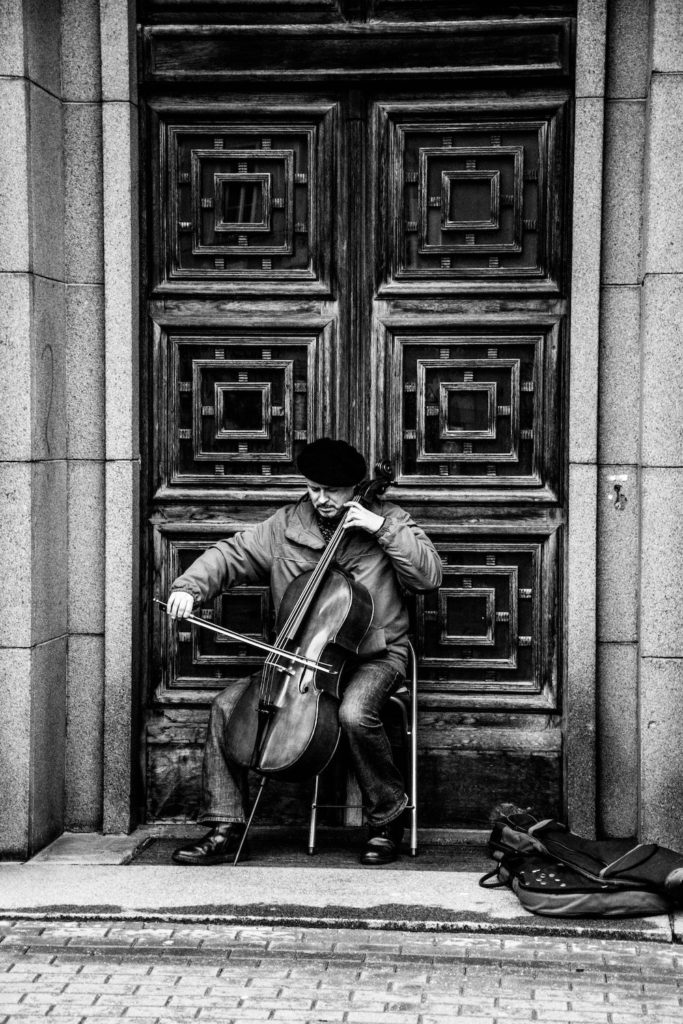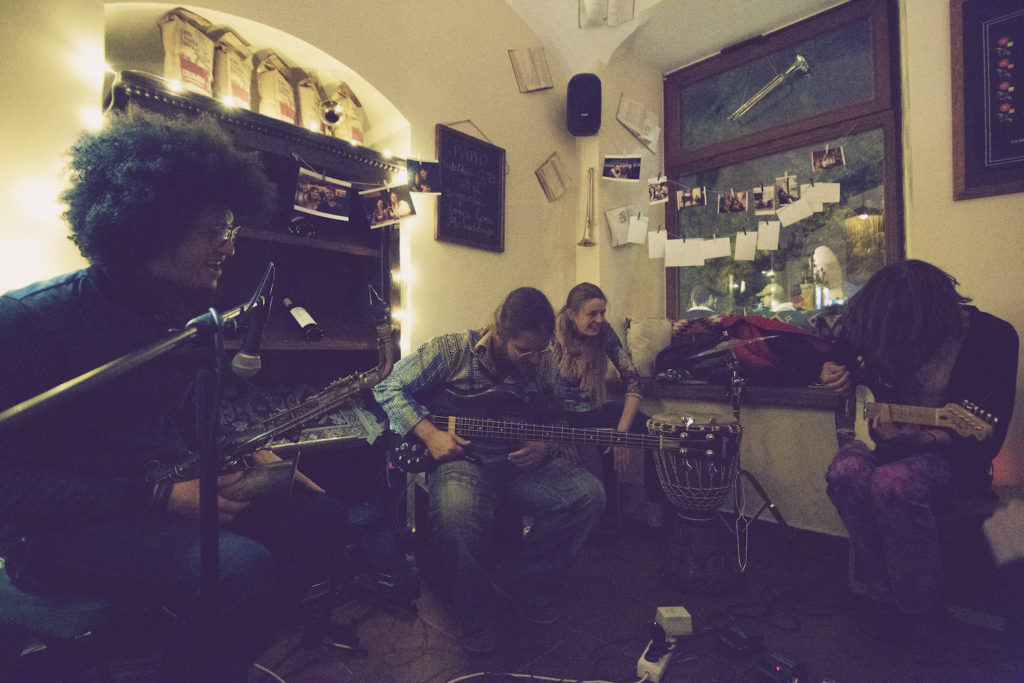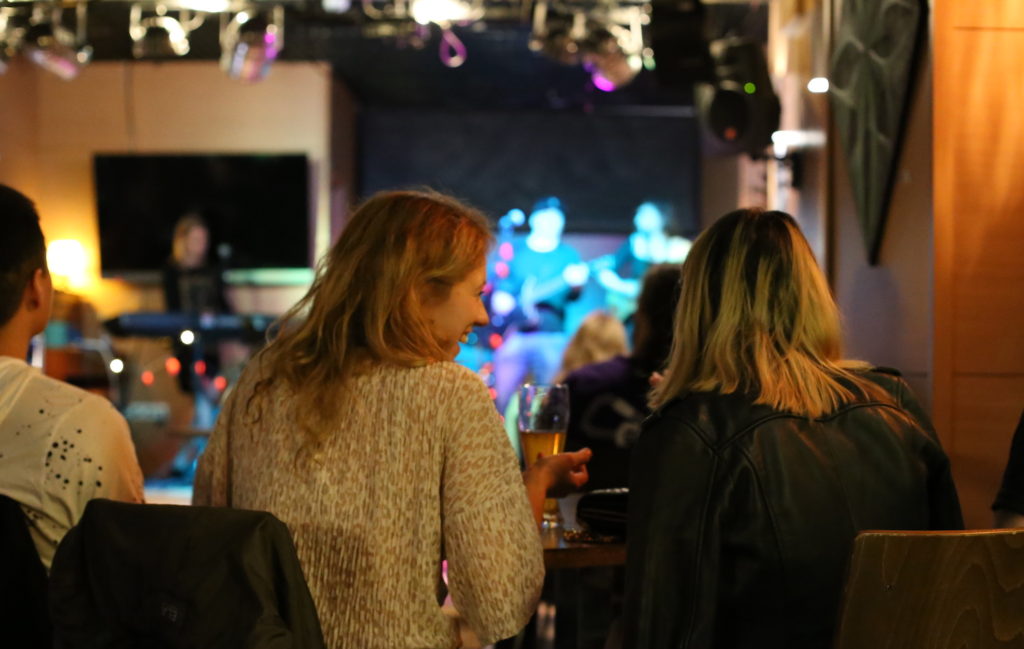Invest in your own entertainment and cultural nourishment!

Wording is key here. As long as we keep “supporting” the arts & culture, there will be a deficit in the valorisation of cultural goods and performing arts. If artists and musicians keep being regarded as people who require the support of other segments of society (government, cultural institutions or sponsors), an education in the arts or music will continue to struggle for serious recognition and fair remuneration. Music, art and culture need patrons, yes, but they don’t have to be patronised. For some, they might be a hobby. For many, however, who pursue a career on this path, they are their trade and livelihood deserving the same respect as any other profession.
Music, art and culture need patrons, yes, but they don’t have to be patronised.
Let’s take the live music offer in Kraków, for instance. Like in many other European cities, the way music is “packaged” for consumption has been changing in the last decade. Arena and large auditorium concerts are now reserved for the kind of artists/bands able to attract an audience en masse. This is the effect that an economy of scale has on the music milieu: an offer where ticket sales are as important as sponsorships, branding, gastronomic goods, golden zones, VIP boxes and backstage access. Music festivals are a perfect example of this commercial phenomenon. A large influx of people over the course of a few days guarantees an income to an array of tag-along industries such as gastronomy, travel or fashion. There is, of course, nothing wrong with this model, but for conscious consumers of music, it’s important to be aware of where the purchasing value really is.

On the other side of the spectrum, there are all the small and medium-size venues hosting a long tail of local and touring artists/bands. The offer is wide, both in music genres and quality, in hosting services and atmosphere, in price and value. Kraków has a handful of such venues, which are staple brands in the local music scene: Klub Re, Harris Piano Jazz Bar, Klub Buda, Piwnica Pod Baranami, Alchemia, Piękny Pies, Klub Studio and Forty Kleparz, just to name a few. There’s also a plethora of non-traditional music venues such as restaurants, cafes and pubs that use a free live music offer to grow their clientele.

With all this in mind, whatever the choice, there is a need to change the way we look at our consumption of music and culture at large. We must be aware that, when we pay for a cultural event or concert, we are investing in ourselves by deciding what to do with our own leisure time and what we choose as part of our cultural intake. At the same time, promoters and venues are partially responsible for the fair and respectful management of a cultural or music offer. Artists and bands do not need our support, what they need is a healthy market where their products can be compared and chosen; valued and paid for; appreciated and respected.

Zainwestuj w swoją rozrywkę i kulturalną strawę!

Dobór słów jest tutaj kluczowy i nieprzypadkowy. Dopóki będziemy „wspierać” sztukę i kulturę, dopóty będzie występował deficyt w waloryzacji dóbr kultury i sztuk performatywnych. Jeśli artyści i muzycy nadal będą postrzegani jako ludzie, którzy potrzebują wsparcia innych segmentów społeczeństwa (rządu, instytucji kulturalnych lub sponsorów), edukacja artystyczna lub muzyczna będzie nadal walczyć o poważne uznanie i godziwe wynagrodzenie. Muzyka, sztuka i kultura potrzebują mecenasów, owszem, ale nie trzeba tych dziedzin traktować protekcjonalnie.Dla niektórych sztuka to hobby. Jednak dla wielu, którzy wybrali karierę na tej drodze, działalność artystyczna jest zawodem i źródłem utrzymania, który zasługuje na taki sam szacunek, jak każdy inny zawód.
Muzyka, sztuka i kultura potrzebują mecenasów, owszem, ale nie trzeba tych dziedzin traktować protekcjonalnie.
Przyjrzyjmy się ofercie muzyki na żywo w Krakowie. Podobnie jak w wielu innych europejskich miastach, na przestrzeni ostatniej dekady, możemy zaobserwować zmiany w sposobie prezentacji i „opakowania” muzyki. Koncerty na stadionach i innych miejscach z dużą widownią są teraz zarezerwowane dla artystów / zespołów, które są w stanie masowo przyciągnąć publiczność. To efekt ekonomii skali w środowisku muzycznym: oferta, w której sprzedaż biletów jest równie ważna jak sponsoring, branding, usługi gastronomiczne, złote strefy, loże VIP i dostęp za kulisy. Festiwale muzyczne są doskonałym przykładem tego komercyjnego fenomenu. Duży napływ ludzi w ciągu kilku dni gwarantuje dochód dla szeregu popularnych branż, takich jak gastronomia, podróże czy moda. Oczywiście nie ma nic złego w tym modelu, ale dla świadomych konsumentów muzyki ważne jest, aby zdawać sobie sprawę z tego, jaka jest realna wartość naszego zakupu.

Na drugim biegunie znajdują się wszystkie małe i średnie obiekty, w których koncertuje wielu lokalnych i przyjeżdżających artystów / zespołów. Oferta jest szeroka, zarówno pod względem prezentowanych gatunków muzycznych, jak i jakości usług, atmosfery, ceny i wartości. W Krakowie jest kilka lokali, ważnych dla lokalnej sceny muzycznej: między innymi Klub Re, Harris Piano Jazz Bar, Klub Buda, Piwnica Pod Baranami, Alchemia, Piękny Pies, Klub Studio czy Forty Kleparz. Jest też mnóstwo nietradycyjnych lokali muzycznych, takich jak restauracje, kawiarnie i puby, które korzystają z bezpłatnej oferty muzycznej na żywo, aby zwiększyć swoją klientelę.

Mając to wszystko na uwadze, niezależnie od wyboru, musimy zmienić sposób, w jaki patrzymy na naszą konsumpcję muzyki i kultury w ogóle. Musimy mieć świadomość, że kiedy płacimy za wydarzenie kulturalne lub koncert, inwestujemy w siebie, decydując, co zrobić z własnym czasem wolnym i co wybieramy w ramach naszego kulturowego „pożywienia”. Jednocześnie promotorzy i miejsca są częściowo odpowiedzialni za uczciwe i pełne szacunku zarządzanie ofertą kulturalną lub muzyczną. Artyści i zespoły nie potrzebują naszego wsparcia, potrzebują zdrowego rynku, na którym ich produkty można porównać i wybrać; wycenić i opłacić; docenić i szanować.
